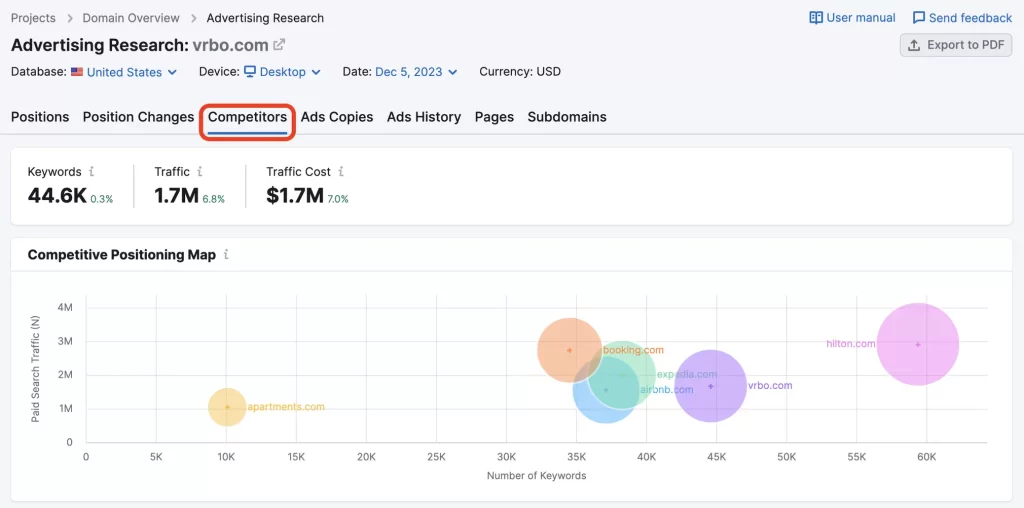Table of Contents
Understanding the Role of a Marketing Consultant
Defining Marketing Consulting
Marketing consulting services can include a wide range of activities, such as market research, brand development, advertising and promotion, public relations, and digital marketing. A marketing consultant may also help a business to develop a social media strategy, create content for their website or blog, or develop email marketing campaigns.

Benefits for Small Businesses
Small business can benefit greatly from working with a marketing consultant. Marketing consultants can help small businesses to develop effective marketing strategies that are tailored to their unique needs and goals. They can also provide valuable insights and guidance on how to reach and engage with target customers.
Marketing consultants can also help small businesses to save time and money by developing efficient marketing plans that are focused on achieving specific objectives. They can help businesses to identify the most effective marketing channels and tactics, and provide guidance on how to measure the success of their marketing efforts.
Overall, working with a marketing consultant can be a valuable investment for small businesses that want to improve their marketing efforts and achieve their goals. By providing expert advice and guidance, marketing consultants can help small businesses to develop effective marketing strategies that drive growth and success.
Developing a Marketing Strategy
A well-defined marketing strategy is crucial for small businesses to reach their target audience and achieve their goals. It involves a comprehensive plan of action that outlines how a business will promote its products or services to potential customers.
Market Research
Market research is the first step in developing a marketing strategy. It involves gathering and analyzing data about the target market, including demographics, preferences, and behaviors. This information helps businesses understand their customers’ needs and preferences, and tailor their marketing efforts accordingly.
Businesses can conduct market research through surveys, focus groups, and online analytics tools. They can also gather information from industry reports, government statistics, and competitor analysis.
Competitive Analysis
Competitive analysis involves researching and analyzing the strengths and weaknesses of competitors in the same industry. This helps businesses identify opportunities and threats, and develop strategies to gain a competitive advantage.
Businesses can conduct competitive analysis by analyzing competitor websites, social media profiles, and marketing campaigns. They can also gather information from industry reports and trade publications.

Brand Positioning
Brand positioning involves creating a unique image and message for a business in the minds of its target audience. It involves defining the business’s unique selling proposition (USP) and developing a brand identity that differentiates it from competitors.
Businesses can develop their brand positioning by identifying their target audience, defining their USP, and creating a brand message that resonates with their customers. This can include developing a brand name, logo, and tagline, as well as creating a consistent brand voice and visual identity.
Overall, developing a marketing strategy requires a deep understanding of the target market, competitors, and the business’s unique value proposition. By conducting market research, competitive analysis, and brand positioning, small businesses can create a comprehensive marketing plan that helps them achieve their goals.
Implementing Marketing Tactics
Small businesses often struggle to implement effective marketing tactics due to limited resources and expertise. Hiring a marketing consultant can help alleviate these challenges and provide valuable insights and strategies for success. Here are some key tactics that a marketing consultant may recommend for small businesses:
Digital Marketing
In today’s digital age, having a strong online presence is crucial for small businesses. A marketing consultant can help develop and execute a digital marketing strategy that includes tactics such as search engine optimization (SEO), pay-per-click (PPC) advertising, and email marketing. By leveraging these tactics, small businesses can increase their visibility and reach their target audience more effectively.
Content Creation
Creating high-quality content is another important aspect of a successful marketing strategy. A marketing consultant can help small businesses develop a content marketing plan that includes blog posts, videos, infographics, and other types of content that are relevant to their target audience. By creating valuable content, small businesses can establish themselves as thought leaders in their industry and attract more customers.
Social Media Engagement
Social media is a powerful tool for small businesses to connect with their customers and build brand awareness. A marketing consultant can help small businesses develop a social media strategy that includes creating engaging content, responding to customer inquiries and feedback, and running social media advertising campaigns. By leveraging social media effectively, small businesses can increase their reach and engage with their customers in a more meaningful way.
In conclusion, implementing effective marketing tactics is crucial for small businesses to succeed in today’s competitive marketplace. By working with a marketing consultant, small businesses can develop and execute a marketing strategy that drives results and helps them achieve their business goals.
Measuring and Analyzing Performance
Small businesses often struggle with measuring the effectiveness of their marketing efforts and determining if they are getting a return on investment. This is where a marketing consultant can provide valuable insight and guidance.
Key Performance Indicators
Key Performance Indicators (KPIs) are essential metrics that businesses should track to measure the success of their marketing efforts. KPIs can include website traffic, social media engagement, email open rates, and conversion rates. By tracking these metrics, businesses can identify what is working and what needs improvement.
Return on Investment
Return on Investment (ROI) is a crucial metric that businesses should track to ensure they are getting the most out of their marketing budget. ROI measures the amount of revenue generated from marketing efforts compared to the cost of those efforts. A marketing consultant can help small businesses determine which marketing tactics are delivering the best ROI and adjust their strategies accordingly.
Adjusting Strategies
Analyzing performance metrics and ROI can help businesses identify areas where they need to adjust their marketing strategies. A marketing consultant can provide guidance on which strategies to adjust and how to do so effectively. This might include shifting budget to more effective channels, tweaking messaging to better resonate with the target audience, or adjusting targeting parameters to reach a more relevant audience.
In summary, measuring and analyzing performance is crucial for small businesses to ensure they are getting the most out of their marketing efforts. By tracking KPIs and ROI, businesses can identify areas for improvement and adjust their strategies accordingly with the help of a marketing consultant.
Building Client Relationships
Small businesses rely heavily on building strong relationships with their clients. A marketing consultant plays a crucial role in helping small businesses establish and maintain these relationships.
Communication Skills
Effective communication is essential for building strong client relationships. A marketing consultant must possess excellent communication skills to ensure that they understand the client’s needs and expectations. Moreover, the consultant must be able to communicate their ideas and strategies clearly to the client.
To improve communication skills, a marketing consultant must:
Listen actively to the client’s needs and concerns.
Ask questions to clarify the client’s expectations.
Provide regular updates on the progress of the marketing campaign.
Be responsive to the client’s inquiries and concerns.
Client Retention Strategies
Client retention is the key to the success of any small business. A marketing consultant must develop effective strategies to retain clients and keep them satisfied.
Some effective client retention strategies include:
Providing exceptional customer service.
Offering loyalty programs and incentives.
Regularly checking in with clients to ensure their satisfaction.
Responding promptly to client inquiries and concerns.
Providing personalized marketing campaigns tailored to the client’s needs.
In conclusion, building strong client relationships is crucial for the success of any small business. A marketing consultant must possess excellent communication skills and develop effective client retention strategies to ensure client satisfaction and long-term success.
Is this article useful? Read more here


